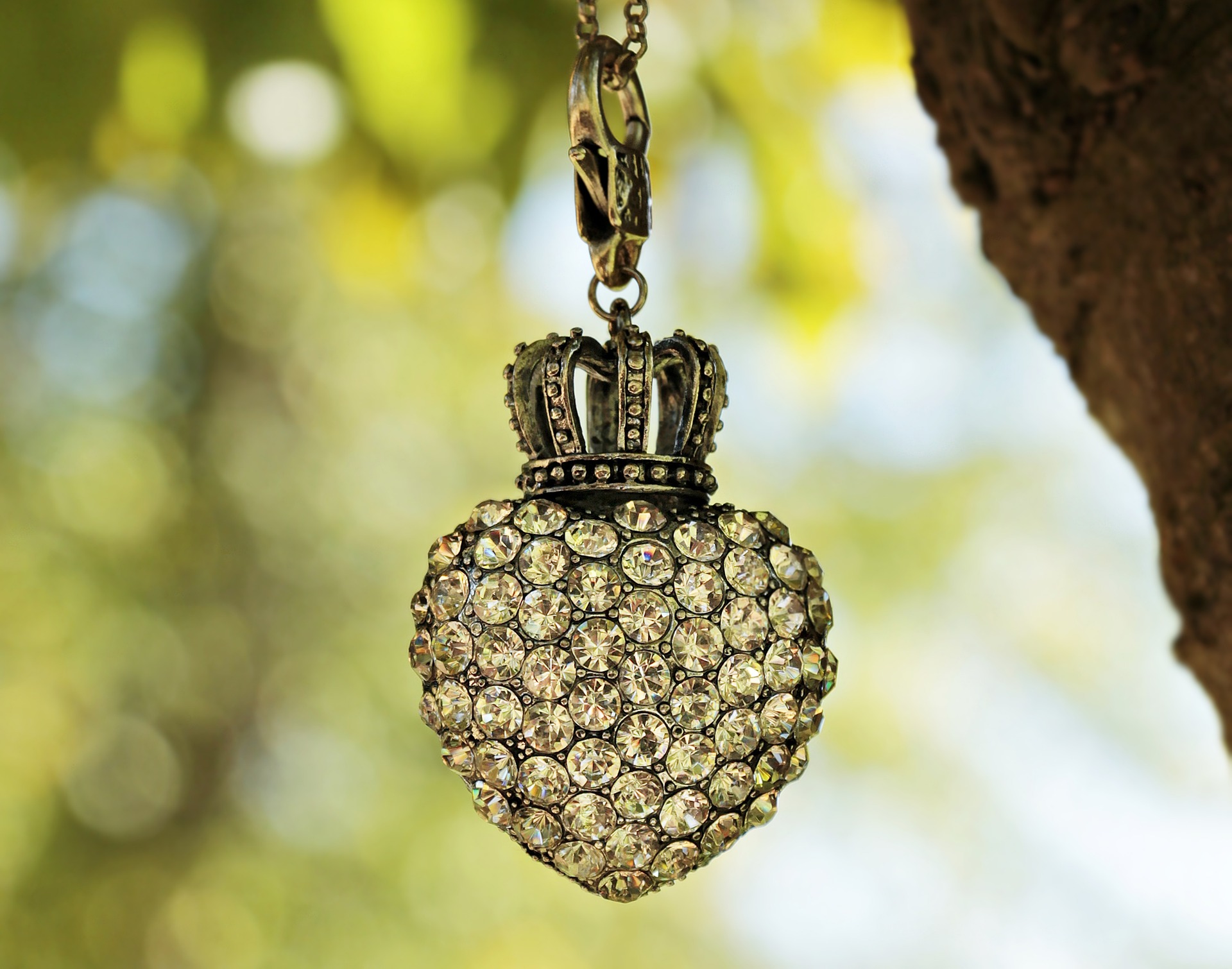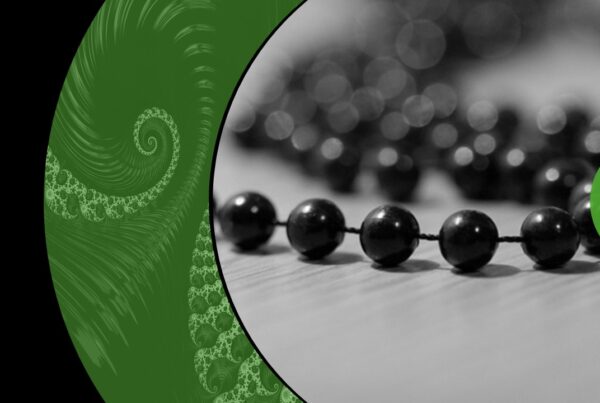- The Queen of Diamonds
1793, Place de la Révolution, Paris
A forlorn figure alighted from the open carriage to the square where the commoners had assembled. The woman who once upon a time was celebrated as Marie Antoinette, wife of King Louis XVI, was now reduced to a mere shadow of herself. She, who once sported flamboyant gowns and elaborate hairstyles, now donned widow’s weeds. Her lustrous locks had turned snow-white and had been trimmed short. Her bonnet did little to mask her sorry state as the strain of the past few days reflected on her visage.
The spark of the revolution had been lit, and the flames were burning with ferocity. The cobbled stones of Paris demanded blood; the blood of the bourgeoisie. The revolutionaries had established that the monarchy no longer wielded any authority. The imposing shadow of the guillotine loomed ahead, and the executioner shifted uneasily.
The woman who was the centre of all attraction, the cynosure of all eyes, was no longer a high and mighty Queen. Her reputation was tarnished beyond repair. In the eyes of the public, she was the epitome of decadence and debauchery. ‘Widow Capet’; that’s what they titled her, after her family name.
If the onlookers had expected her to crumble to pieces, she disappointed them. They pounced on her with viciousness, passing untoward remarks as she was led toward her death. Yet, she stood defiant and calm, as though this was just another day, not her last.
In the gathering at the square, a group of women knit. Executions had become common, and for each head that rolled, they knit a knot in the wool.
“Sacre Bleu! How the mighty have fallen! From a high perch in Versailles to the executioner’s scaffold!” one of them cackled.
Another woman in the group put her knitting needles down abruptly and spat out words filled with resentment.
“This is the price she must pay for her sins. Are they few? I shudder at her indulgences, her high society parties, and her wasteful opulence, while we, the commoners, craved for a crumb of bread!”
They continued to assassinate the former Queen’s character and pronounce their judgement unabashedly.
“We should have never trusted the Austrians. A foreigner for a Queen? Corrupt, loose, and a bad influence on the King. Not to mention her many paramours- both men, and women!”
“An immoral being! Her greed for diamonds and luxury was her folly!”
The women sighed. They would not be able to afford such luxuries in this lifetime. And that was precisely why they needed to eradicate such vermin from society.
“At last! Today, justice will be served!”
“Shh! It is time for the execution.”
The subject of their discussion made her way up to the guillotine. She kneeled to accept her sentence with dignity. Bold. Defiant. Emotionless. The gathering fell silent. The devious contraption welcomed her in its hungry jaws. With a creak and a thud, the blade sliced her head off in one swift motion. The head rolled away from the body that went limp.
The crowd burst into exuberant shouts.
“Vive la République!”
The reign of terror had begun. News of the execution travelled far and wide, and the shockwaves reverberated not only within France but also in neighbouring countries. Austria mourned the loss of its beloved daughter and grieved for her.
Queen Marie Antoinette’s final resting place was in an unmarked grave, alongside the other unclaimed bodies of the revolution. No royal funeral, no eulogies, no tributes.
How transient is the nature of power! Once a Queen on a throne; now an unclaimed body in a pauper’s grave.
1787, Bar de L’Entracte, Paris
The local taverns bustled with gossip.
“Mon Dieu! Have you heard the latest news? This is the Queen’s greatest offence, yet. She seduced a man of God; a man of the church, and that too for diamonds. Imagine! A clandestine tryst for an exotic necklace!”
The value of the diamonds became a subject of interest.
“The necklace had seventeen glorious diamonds as large as hazelnuts, with multiple pendants like stars. The jewellers called it the Queen of Diamonds!”
The details of the sordid affair were discussed in places where the peasant folk gathered to drown their sorrows in drink. Queen Marie Antoinette had slept with the Cardinal de Rohan in return for a diamond necklace. Yet both had emerged unscathed. When the news of the scandal broke out, the palace pinned all the blame on the Comtesse Jeanne de la Motte, to safeguard the royal reputation. That innocent woman would now languish in some prison till the end of her days.
This incident exacerbated the bubbling anger that simmered in the hearts of the commoners. The peasant folk had reasons to complain; years of drought, dismal produce, excessive taxes, and an ineffective monarchy. It was rumoured that the Queen advised them to eat cake when they complained about the lack of bread!
The seeds of dissatisfaction started germinating rapidly. The affair of the diamond necklace was the last straw to break the camel’s back.
Discontent is like a poisonous weed. Left uncontrolled, it will spread, choking everything and everyone in its path.
- A Trial and a Royal Scandal
1786, Parlement de Paris
Messieurs. Bohemer and Bassange vs. Cardinal de Rohan.
There was nothing like a scandal and a public trial to cause a sensation. The audience in the galleries watched with excitement. A Parisian Jeweller had levelled accusations against Cardinal de Rohan, a grand officer of the French monarchy, for defaulting on payment for a diamond necklace. The Cardinal refuted all allegations and claimed that he was acting on behalf of the Queen. This was the ultimate Coupe de Theatre.
Cardinal de Rohan had been summoned alongside the plaintiffs. The proceedings commenced with denials and vehement protests by the different parties involved. Messieurs Boehmer and Bassange presented their side of the story.
“The diamond necklace in question is one of the finest and most expensive pieces we have created. Cardinal de Rohan approached us for a viewing. We were overjoyed when he expressed intent to purchase the piece on behalf of Her Majesty, Queen Marie Antoinette. This necklace is indeed befitting of a Queen! He even showed us a letter from Her Highness and agreed to act as guarantor.”
The audience broke into whispers.
What surreptitious dealings did the Queen have with Cardinal de Rohan? Why would she approach him of all people?
The jewellers continued.
“As royalty preferred discretion, a request of this nature wasn’t unusual. The negotiated price was two million Livre to be paid in instalments in good faith against the Queen’s letters and the Cardinal’s guarantee. The expectation was that Her Majesty would pay us the first instalment at a later date. We honoured the agreement and had the necklace delivered to the Cardinal’s house.”
The enormous value of the necklace elicited gasps from the audience.
“When we did not receive the first instalment, we contacted the Palace immediately, only to be told that Her Majesty was unaware of any communication with the Cardinal and had never desired the necklace in the first place.”
The Parlement called upon Cardinal de Rohan to be questioned next. He looked haggard, and the wrinkles on his face were as prominent as ever.
“I was approached by the Comtesse Jeanne de la Motte, who informed me that she was a secret agent of Her Majesty, Queen Marie Antoinette. I had no reason to doubt her because she had letters from Her Majesty. Through the Comtesse, the Queen instructed me to contact the jewellers to procure this necklace for her. She claimed that she did not want to approach them directly, lest the public disapproved of this extravagant purchase. On this basis, I went ahead with the negotiations and on receipt of the necklace, handed it to the Comtesse to deliver to the Queen.”
The Cardinal hung his head to avoid the judgmental glares of disbelief directed at him.
The Comtesse de la Motte was the next to be summoned. The gathering strained their necks to catch a glimpse of her. She had chestnut-brown hair, alabaster skin, and blue eyes that harboured a deep sorrow in them. In her testimony, she stated that the letters were given to her by the Queen, and she was only a messenger. Tears and sobs followed.
The Parlement examined the crucial evidence, the letters, but were deeply embarrassed as the tone of the writing transformed from warm to intimate; akin to a lover’s communication. It seemed that the Cardinal was smitten by the Queen who had manipulated him to procure the rare necklace with her flirtations.
The trial laboured on until an important discovery was made. The contents of the letter had a significant error.
“The letters have been signed Marie Antoinette de France! The Queen’s royal signature is her given name, Maria Antonia, not her official name. These letters are only a forgery and must have been attempted by the person who delivered them.”
Accusatory glares were directed at the Comtesse.
“No! I am innocent. This is the Queen’s doing! I don’t have the necklace with me. I’m only a pawn!” she screamed and turned a deadly shade of white.
It was too late. The verdict was announced.
“Comtesse de la Motte! We sentence you to public whipping. You will be branded with a V denouncing you as a voleuse; a petty thief. You will be imprisoned for life at Salpetriere, where the prostitutes’ prison is.”
The woman was forcefully led away, kicking, and protesting. The implications of her words, accusing the Queen of misdemeanour and infidelity, resounded through the silence.
“The Parlement finds Cardinal de Rohan innocent of the accusations levelled against him. However, for attempting such a dalliance, he will be relieved of his position in the church and will have to settle the debt of the diamonds in his role as guarantor in the negotiation.”
The Cardinal was ashamed. He had brought disgrace and ruin upon himself and sullied the name of the church. He also had a massive debt to clear. But worst of all, he had been betrayed by the only woman he had ever loved. What had he expected? That a mighty Queen would profess her love for him in the open and come to his rescue? He probably deserved this sentence not for fraud, but for naivete.
The verdict was concluded with the final statement.
“Her Majesty Queen Marie Antoinette is innocent of all crimes. It has been established without doubt that she was only a victim of the nefarious plot hatched by the Comtesse.”
Onlookers shook their heads in disbelief and anger. Privilege had prevailed, and poverty had paid the price.
- Love blooms in the Rose garden
1784, Palace of Versailles
Cardinal de Rohan hummed a tune. He was finally going to meet HER. He was a man on a mission.
The Cardinal wanted to meet Queen Marie Antionette to set the record straight. His unsavoury remarks against the Franco-Austrian alliance had caused his fall from grace. He was viewed negatively by the Queen and her Austrian mother, Empress Maria Theresa. He desired to crawl back into the good books of royalty, to secure his position as future prime minister of France.
How lucky was he to have coincidentally met the Comtesse de la Motte! She agreed to help him establish a channel of communication with the Queen. Forgiveness seemed to be within reach. He had begged her to grant an audience with Her Majesty. The Comtesse had initially been hesitant. She warned him that if someone spotted them together, the consequences would be dire. The Cardinal assured her that he would exercise abundant caution.
With great difficulty, the resourceful Comtesse arranged for a late-night rendezvous, in the royal gardens at the Palace of Versailles. De Rohan adjusted his wig and donned his best silk frock coat and knee breeches. He was aware that he wasn’t physically attractive but was confident of winning over the Queen with his charm.
The Cardinal’s royal bearing and fine attire permitted him to enter the palace grounds without attracting much attention. He walked listlessly in the gardens, awaiting further intimation. It was close to midnight when a cloaked figure appeared. It was the Comtesse.
“Hurry! Her Majesty awaits you in the rose garden. She can grant you audience only for a short time.”
De Rohan straightened his jacket and sped to the garden, his heart racing. She was standing with her back turned to him. He plucked a rose and made his way up to her, wincing as the thorns pierced his flesh. He ignored the pain as she turned to greet him. She was just as he imagined; with lovely snow-blonde hair and twinkling eyes. In this rose garden, she was the most exquisite flower of them all.
He kneeled before her.
“Your portraits do not do justice to you, your Majesty!” the Cardinal exclaimed.
She smiled and his chest was filled with a lilting sensation.
“Please accept this rose from me as a symbol of my allegiance. Your humble servant begs forgiveness for his past indiscretions,” he pleaded.
She extended a graceful arm and accepted the rose.
“I find your persistence endearing. I shall grant you forgiveness, but do not err again. I will seek you when I need you. Then, do not forsake your Queen.”
“My life and service are in your name from now onwards, your Highness!”
“Mon Cherie! My cherished one! Leave now but wait for my letters. My faithful Comtesse will carry out my instructions.”
The Cardinal left the garden, jubilant, exhilarated, and more in love than ever before. Marie Antoinette had become his raison d’etre, his reason to live.
The Queen was the most powerful woman in France. Yet, she had chosen HIM of all people. He, a man of fifty, had lost his head over her. She had bewitched him, heart, and soul, and he would do anything for her.
Forbidden love is like a dancing sunbeam; it pulls a weary seeker towards it and flits around. As much as he wants, he cannot bridle it in his palm. Unfortunately, when the night falls, the beams will fade into oblivion, leaving the seeker craving for light, one last time.
- A Conspiracy is hatched
1783, Residence of Armand Retaux de Vilette
The curtains of the shabby room were drawn to hide a pair of lovers intertwined in bed.
“Do you possess the courage to perform this risky task?” the Comtesse demanded.
Her paramour, Armand, who lay next to her, opened his half-shut eyes and yawned.
“Oui, Jeanne! Of course, I do. Do you question my competence to forge documents?”
The Comtesse clicked her tongue in indignation.
“I have worked hard to win the Cardinal’s confidence. He believes that I am indeed a secret agent of the Queen, and I can help win back his favour with Her Highness. The time is ripe. To convince him, we must show letters, as though written by the Queen herself.”
“I shall employ my best craftsmanship and forge the letters,” Armand assured her.
The Comtesse’s plan had potential, even though it meant dallying with danger. Armand was tired of his squalid existence as a pimp and a gigolo.
“The letters should have a flirtatious tone and should be signed with Her Majesty’s name so that no doubt falls on us. Let the Cardinal become enamoured with her. A man in love is easier to manipulate.”
“But what if he wishes to meet the Queen first? Will we not be in trouble?” Armand inquired.
“There is a prostitute who lives near Palais Royale- her name is Nicole Le Guay. She bears an uncanny resemblance to the Queen. She is in much demand among the menfolk as they wish to bed a royal look-alike. If needed, we can pay her a few coins to impersonate Her Majesty. She can be summoned to the gardens of Versailles at night, where the grounds are largely deserted, and no one will be any wiser. The old fool will not know the difference.”
“Oh là là! You think of everything!”
“Once the Cardinal is in our control, I will ask him to begin the negotiations for the necklace.”
“But what if he inquires as to why the Queen hasn’t approached the jewellers directly?”
“The letters will mention that the King does not wish to splurge on diamonds, but the Queen will claim that she desires them deeply and must have them. The Cardinal will be assured that Her Highness will make the payments discreetly, and he needs to be only an intermediary. He can be encouraged to share the letters at the bijouterie as guarantee. If your forgeries are as good as you claim, the jewellers will not be suspicious.”
“What happens next?”
“The Cardinal will purchase the necklace and hand it over to me. I will quietly disappear with the gems. When the jewellers realize that the first instalment hasn’t been made, they will contact the Cardinal. Once he discovers the deception, he will try to settle matters discreetly for fear of being shamed or arrested. The jewellers will receive their payment, and the affair will die a natural death.”
“And the Queen?”
“The Palace will suppress any hearsay that sullies the reputation of Her Highness. The rumours of her hosting orgies and grand parties are rampant in the streets. One more slur will hardly make a difference.”
“What do we do with the necklace once it is in our possession?”
“My husband Nicholas is on board with this plan and will assist. He will dismantle the individual gemstones, and sell them in the black market, after which we can split the fortune!”
Armand nuzzled the Comtesse’s neck playfully as she giggled and pushed him away.
There was much to be done and a lot at stake. The money she earned with this intricate deception would secure her a life of luxury, one that she ardently craved, but had been deprived of, for so long.
Little falsehoods are like snowballs. They gather impetus as time passes by until they form giant mounds that unleash avalanches under which the shards of truth get buried.
- The Queen of Hearts
1778, Palace of Versailles
The royal couple King Louis XVI and Queen Marie Antoinette strolled in the gardens of Versailles, enjoying their time together before the King occupied himself with matters of the state. With a slender frame and luscious blonde locks put up in a pouffe, Her Majesty was a vision to behold. She was dressed in a simple blue silk gown that accentuated her light blue eyes which were filled with deep adoration for her husband.
The King kept her abreast of his latest meeting.
“Mon amour! The diamond necklace is très magnifique! I have seen it myself and marvelled at its workmanship. It is elaborate with festoons and pendants. Messrs. Boehmer and Bassange are insistent that I must purchase it for you. They say this necklace, the Queen of Diamonds, must adorn my beautiful beloved’s neck!” he exclaimed.
He looked expectantly at his wife, hoping she would be overjoyed at this extravagant gesture of love. To his surprise, she seemed hesitant.
“Merci, my Lord! It gives me great joy that you would consider me worthy of such an exquisite piece. But what use do I have for diamonds? France is suffering, and this single necklace costs more than many battleships. We need to fortify our borders as our neighbours grow restless. We also need to ensure that the poor have enough to eat. Those matters are of paramount importance, not some fancy piece of jewellery!”
The King was startled by his wife’s conviction.
“Dearest, I know it has not been easy for you, to leave your family in Austria to come to a foreign land as a Queen. Sadly, our subjects still regard you as an outsider and spread vicious rumours about you. Yet, you choose not to seethe, but serve.”
“Do not worry, your Highness. They will change their opinion of me. History will remember me as the Queen of Hearts, and not the Queen of Diamonds!” she declared.
She interlinked her fingers with his and beamed at him, confidently. Together, they would win France over.
When the beginning becomes the end, and the end becomes the beginning, the story changes. History is witness to the fact that the maligned are merely victims waiting for their stories to be told, in the right sequence.
***
AUTHOR’S NOTE
This story is inspired by true events. The affair of the diamond necklace is one of the earliest examples of catfishing in an era where there was no internet, no social media, and no fake friend requests. The incident is significant as it ignited hatred against the royal family and sparked the French revolution.
Creative liberties have been taken to mould the story to the prompt.
GLOSSARY
Sacre Bleu– Shock
Mon Dieu – My God
Vive la République– Long live the republic
Comtesse– Countess
Parlement- Court
Coupe de Theatre- A dramatic turn
Bijouterie– jewel store
Voleuse- Petty thief
Mon Cherie- My cherished one
Raison d’etre- Reason to exist
Oui – Yes
Oh là là– Indeed.
Merci– Thank you!
This Story was first published here




